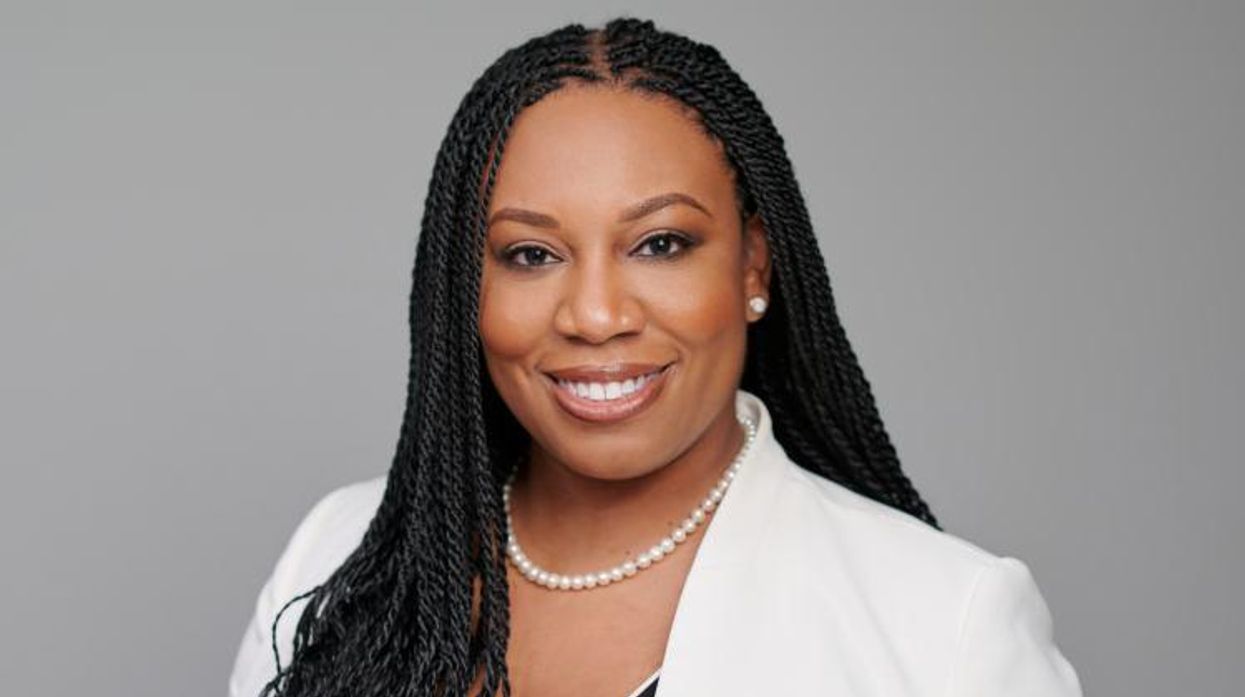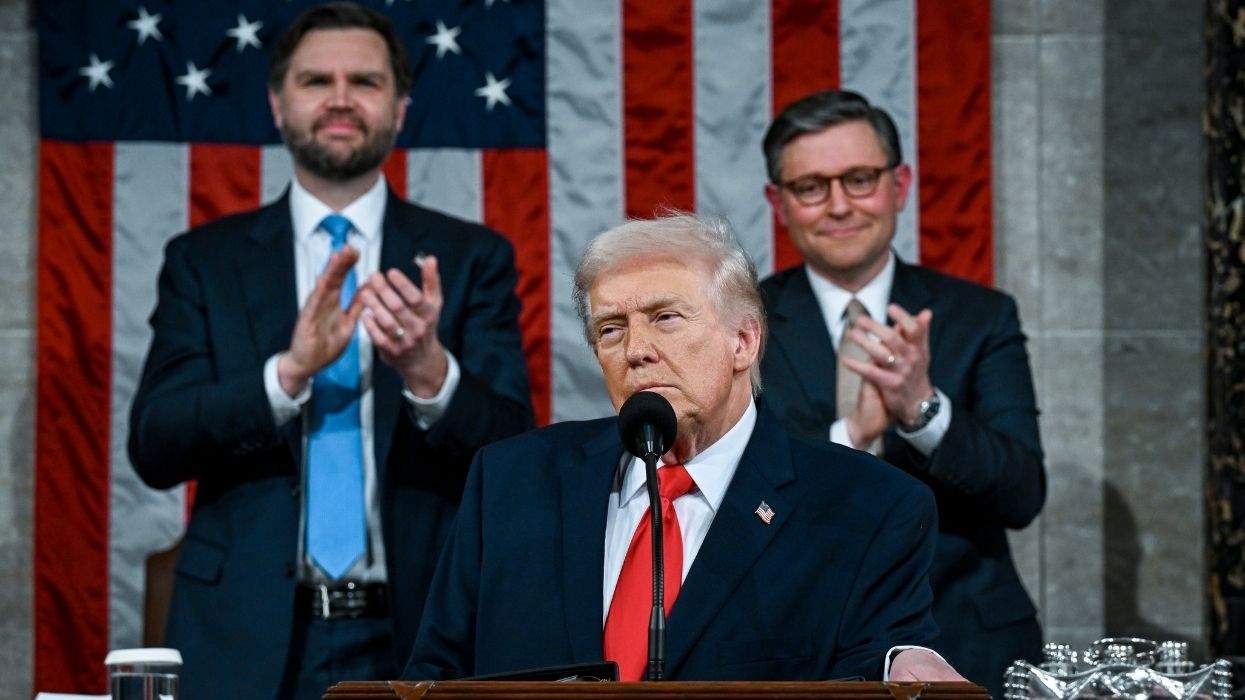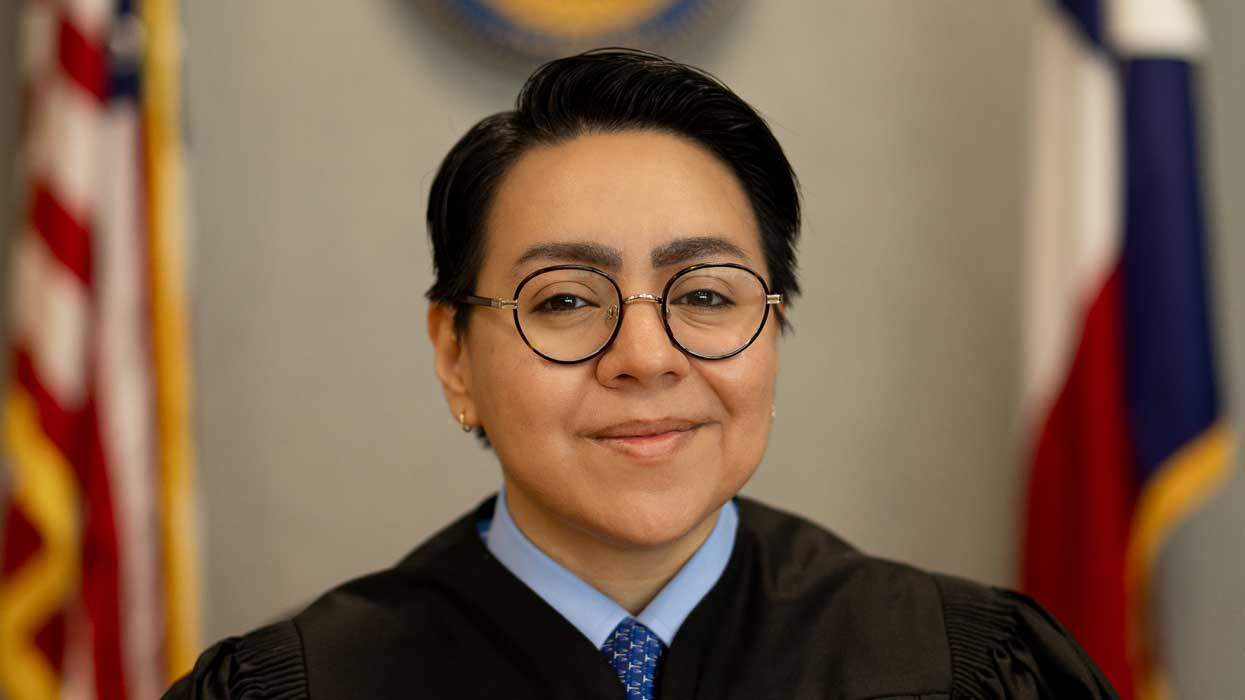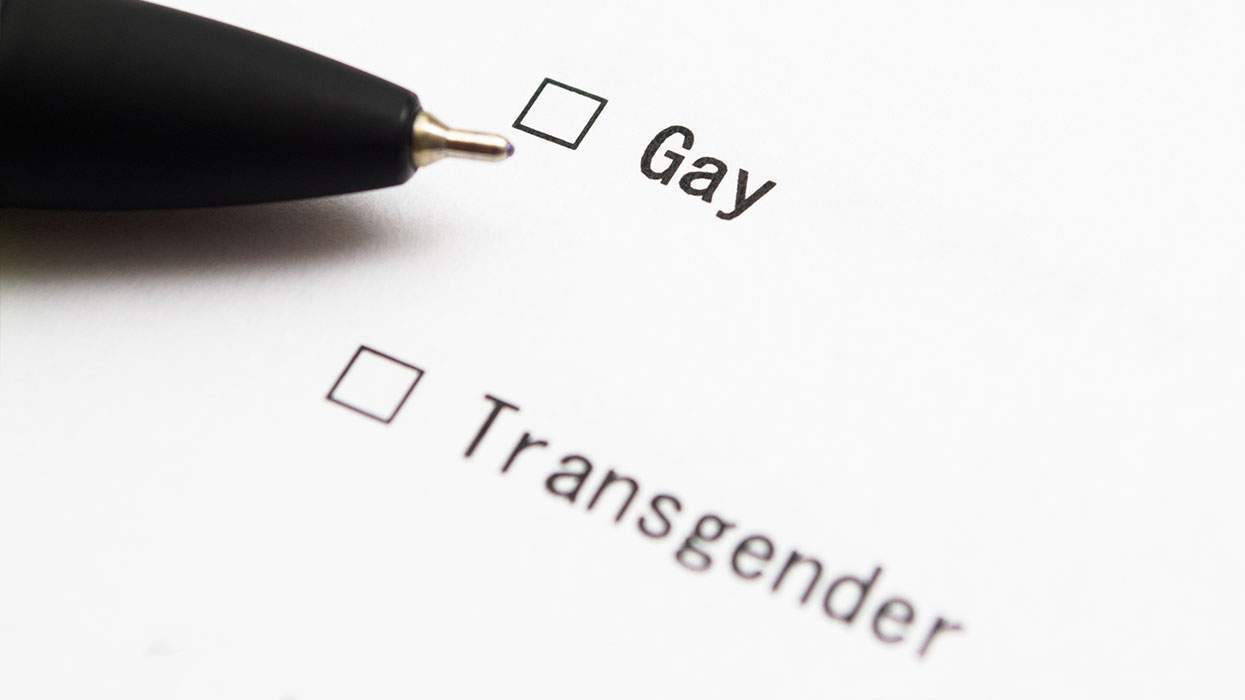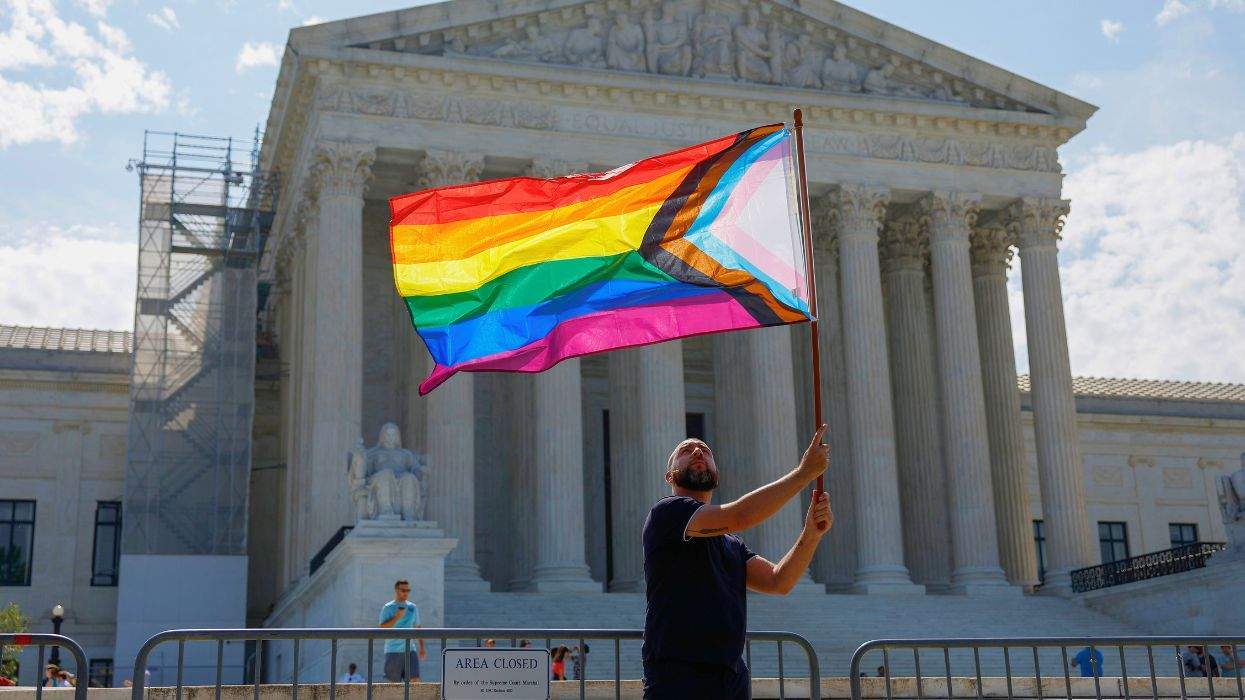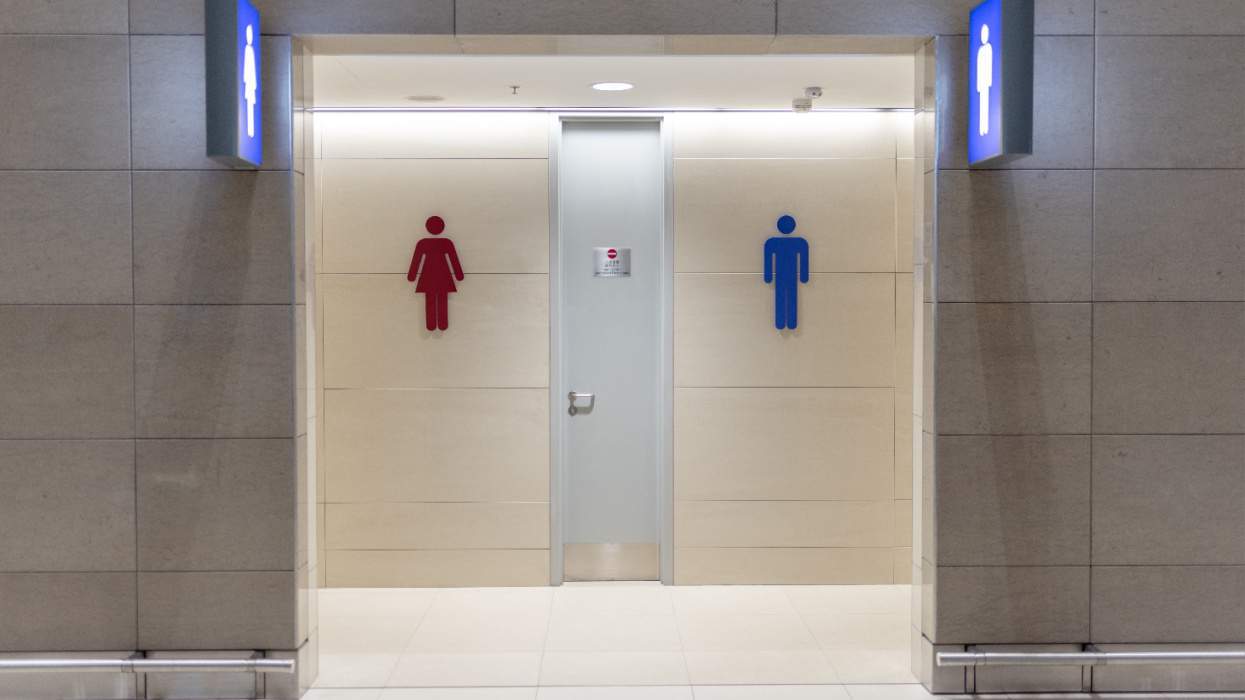Last week, I wrote a Slack message to our staff and referred to Mike Pence as a "pussy." As soon as I hit send, I felt a sense of regret. Some of the wonderful women I'm surrounded with at Pride Media were kind enough to let me know that that word is not mine to use, and I apologized profusely. I was wrong, and I knew it.
I was embarrassed about my misstep, and I've also been ashamed to be a white, middle-aged man, offended at how white, middle-aged (and then some) men came to rule the United States during what might me know as the supremacy presidency, in which Donald Trump's reign of terror was the utter personification of a toxic masculinity, LGBTQ+ intolerance, and Caucasian bigotry.
As much as I'm angry and repulsed about the last four years, and grateful that the supremacy presidency is finally coming to a close, as a middle-aged white columnist, I didn't feel that my words were an appropriate representation regarding all that has been damaged during the last four years. Outside of being a gay man, how could I have been personally affected by white and male entitlement?
Thus I reached out to someone who has been intimately disturbed by all that has happened during these last four forgettable years. Imani Rupert-Gordon is familiar to the LGBTQ+ community as the executive director of the National Center for Lesbian Rights and a longtime movement leader and advocate for LGBTQ people of color.
My first request of her was to help me and any man reading this further understand why it is not OK for us to use the word "pussy" as a derogatory term toward other men. When Trump disgustingly said that he grabbed women by "the pussy," the word was catapulted to a rallying cry for women. "When men use words that traditionally describe women or femininity to insult and demean other men, it reinforces that women and people with characteristics that are considered 'feminine' are inferior, Rupert-Gordon explained. "This is bad for everyone but has dangerous consequences for anyone that doesn't identify as a man or isn't perceived to be a man."
According to Rupert-Gordon, this type of behavior reinforces the systemic oppression, which Trump represented, that women, transgender, gender-nonconforming, and nonbinary people already face. "And while it's problematic when this language is used to be degrading in this context by anyone, it is especially harmful when it is done by someone that experiences gender privilege, like Trump, because it does more to uphold the already unbalanced power dynamic," she said.
Since Trump has been the personification of male power, how anxious is Rupert-Gordon to see diversity highlighted and promoted by the upcoming Biden administration? "A diverse administration will be important to rebuild trust in our communities that have been disenfranchised by the previous administration," she said. "We have to remember that representation is one of the very first ways that people will believe that solutions are created with their specific needs in mind."
Rupert-Gordon added that public policy hasn't always benefited all of us, and people who have been historically underrepresented will want to know that these solutions will address the needs in their communities and will be applied in a way that will work for them. "It helps to build trust, which is incredibly important when you are unaccustomed to seeing yourself represented by your government," she noted. "We all should be able to see ourselves and our experiences reflected in the administration that serves us."
Having a diverse administration with different experiences will provide a more robust perspective so that the solutions will include the needs of more of us, she said. And as important as it is to have people at every level advocating for our communities, the people that best understand how policies will affect us are people in our communities that share these experiences.
"Fortunately, the president-elect has committed to having the most diverse administration, and we've already seen this begin to materialize," she pointed out. "I am also thrilled to see that LGBTQ people of color are included in his administration because 'diverse' teams often exclude people from multiple underrepresented identities."
How anxious is Rupert-Gordon to see what the Biden administration does to restore LGBTQ+ rights? "I'm incredibly excited about what the future holds for the LGBTQ community under the Biden and Harris administration," she said emphatically. "Biden was the first president-elect to thank both gay and transgender people in his victory address, and by doing so, he signaled to the LGBTQ community that we would not be an afterthought in his administration, which is exciting."
She believes the commitments that Biden has made to our community will go a long way on our path to equity. "The combination of hiring LGBTQ people in positions of leadership, the passing of legislation and policies that support LGBTQ people, and rolling back the horrible anti-LGBTQ legislation left over from the Trump administration will be a positive start moving forward," she said.
Finally, I asked Rupert-Gordon to speak about how detrimental it has been for Trump to champion white supremacy, and how we even begin to repair all the damage he's done to the Black community. "We cannot overemphasize how President Trump explicitly used racism to sow division in this country throughout his time in office," she stressed. "From his racist policies to how he talked about COVID-19 to his refusal to denounce white supremacists, this president has actively perpetuated and encouraged racism in this country."
In order to repair the damage, Rupert-Gordon said we must have a long-overdue reckoning with institutional racism and white supremacy in the United States. "The disparities that exist in Black communities and communities of color are horrific, and even worse for LGBTQ people of color,"she commented. "This inequality is systemic and institutional, and any solution will have to not only address the root causes of racism but correct for the disparities that we see exacerbated by race like policing and criminal justice, health care, education, housing, and economic justice."
While we're counting the days until the end of the supremacy presidency, let's hope that the road ahead provides more elevation for women, greater tolerance and appreciation for the LGBTQ+ community, and steps taken to finally end systemic racism in the United States. Supremacy replaced by opportunity.
John Casey is editor at large for The Advocate.
